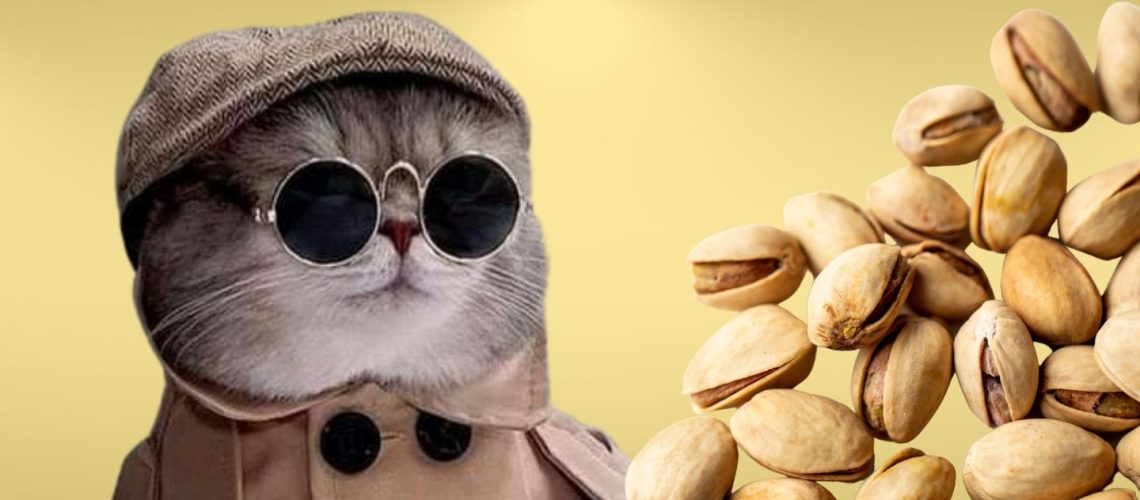Cats, being obligate carnivores, require a diet primarily composed of meat in order to thrive. It is crucial to provide them with a balanced diet that meets their nutritional needs. However, when it comes to feeding cats pistachios, the answer is a definite no. While pistachios are not toxic to cats, they can cause digestive issues and should be avoided in a cat's diet.
Pistachios and their nutritional content
Fats and calories in pistachios
Pistachios are high in fat and calories. While these nutrients are essential in moderation, excessive consumption can lead to health issues such as weight gain and pancreatitis in cats.
Other nutrients in pistachios
Pistachios also contain various other nutrients, including protein, fiber, and vitamins. However, these nutrients can be obtained from other, more appropriate sources in a cat's diet.
Potential health risks of feeding cats pistachios
Gastrointestinal upset and indigestion
Pistachios are not easily digestible for cats, and consuming them can cause gastrointestinal distress, including vomiting and diarrhea.
Pancreatitis
The high fat content in pistachios can contribute to the development of pancreatitis in cats, a painful and potentially life-threatening condition.
Weight gain
Excessive consumption of high-calorie foods, such as pistachios, can cause weight gain in cats, leading to obesity and associated health problems.
Choking hazard and intestinal blockage
The shells of pistachios pose a choking hazard for cats and can also cause intestinal blockages if swallowed.
Salt content in pistachios
Many pistachios are salted, and consuming too much salt can lead to sodium ion poisoning in cats, causing symptoms such as vomiting, diarrhea, tremors, and even seizures.
Potential for nut allergies in cats
Although rare, some cats may have an allergic reaction to nuts, including pistachios, causing skin irritation, gastrointestinal issues, and respiratory problems.
Signs of pistachio ingestion in cats
Symptoms indicating a potential issue
If your cat has consumed pistachios, look for signs of gastrointestinal upset, such as vomiting, diarrhea, abdominal pain, or discomfort. Additionally, monitor for signs of choking or difficulty breathing if the cat has potentially ingested the shells.
When to contact a veterinarian
If your cat exhibits any concerning symptoms after consuming pistachios, contact your veterinarian immediately for advice and care.
Tips for preventing cats from consuming pistachios
Proper storage and handling of pistachios
Store pistachios in a secure location, away from your cat's reach. Be mindful when consuming pistachios yourself, and pick up any dropped nuts or shells to prevent accidental ingestion by your cat.
Training and supervising cats around food
Train your cat not to beg for food or steal treats, and always supervise them around human food to ensure they do not consume anything harmful.
Safe snack alternatives for cats
Approved cat treats
Instead of offering pistachios, provide your cat with high-quality cat treats that have been specifically formulated to meet their nutritional needs.
Human foods that are safe for cats
Some safe human food options for cats include cooked, plain meat, such as chicken, turkey, or lean beef. Always consult with your veterinarian before offering any human foods to your cat.
Feeding guidelines for treats and snacks
Treats and snacks should not make up more than 10% of your cat's daily calorie intake, to ensure their diet remains balanced and meets their nutritional requirements.
Consultation with a veterinarian
Importance of discussing dietary changes with a vet
Before making any changes to your cat's diet, consult with a veterinarian to ensure their nutritional needs are met and avoid any potential health issues.
Tailoring a diet to your cat's specific needs
Your veterinarian can help tailor a diet to your cat's unique needs, considering factors such as age, weight, activity level, and existing health conditions.
Conclusion
Feeding pistachios to your cat carries potential risks, including digestive issues, pancreatitis, and choking hazards. It is crucial to provide your cat with a balanced, species-appropriate diet that meets their nutritional needs. Always consult with a veterinarian before making changes to your cat's diet or offering new treats and snacks.







